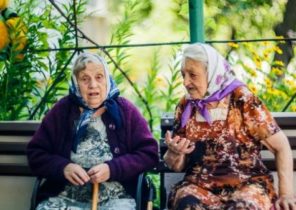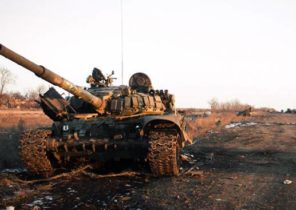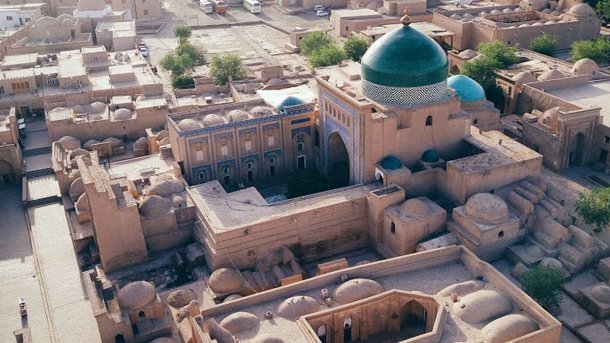
Six months ago, on 2 September 2016, Uzbekistan has lost its unchallenged since independence (1991) leader Islam Karimov. In fact, what is today’s Uzbekistan, a legacy of Karimov, who has ruled the country for 26 years. And the first impression that occurs when you are in this country — a relatively short-lived Soviet past few hooked Uzbekistan.
On the Soviet legacy here today does resemble that of panel houses in residential neighborhoods. It is not clear how this truly Eastern country actually came to the Soviet Union. Because Uzbekistan has always been a part of a completely different world: was part of Persia, and even now more similar to Iran than to the former Soviet socialist Republic.
Now anywhere will not find any mention of Lenin, the Communists and pioneers. Uzbek language switched to the Latin alphabet, and instead of Soviet monuments on pedestals appeared monuments of Central Asian Turkic warlord and conqueror Tamerlane. This Uzbek national hero, also known under the name of Timur, in the fourteenth century created one of the greatest empires of all time, which occupied the territory from India to Turkey and Saudi Arabia. After one of his trips to India Tamerlan drove hundreds of elephants which were used for the construction of the famous mosque of Bibi Khanym in Samarkand, which is still one of the favorite tourist spots in the city.
Travel in a bus in Tashkent — $0,17, museums and architectural complexes — $1-10.
The majestic history of the country in the past. And now, especially after the death of Islam Karimov, is uncertain. It is obvious that Uzbekistan is the poorest former Soviet Republic and one of the poorest in the world, where GDP per capita is $1856. For comparison, in Ukraine in 2015, it amounted to little more than ($2000). Accommodation with Breakfast with huge portions here can be found for $20-25. Travel in a taxi (taxis here and all who have cars) at a distance of 20 km costs only $2-3. Travel in a bus in Tashkent — $0,17, and a complete meal of large portions of plov, tea, bread and salad costs $2-4. The entrance to the museums and architectural complexes will cost $1-10.
Probably the best way to feed your family — send at least one member to work in Russia. But there because of sanctions in recent years things are bad, complain the Uzbeks. Alternatives home for a bit. With the business in Uzbekistan is hard, corruption is off the charts (according to the international organization Transparency International, the country ranks 166th place out of 175, that is one of the ten most corrupt in the world), and all large enterprises are in the hands of people close to the President’s family, and now friends of the new leader Shavkat Mirzieev. Most of the population is engaged in agriculture. Perhaps the main source of budget revenues from growing cotton. In his collection, as in Soviet times, rounded up students, and even the military.
“The norm is 40-50 pounds a day, students less students more. You want to buy compulsory work — pay a bribe. Often, people hire someone to replace yourself in the cotton. Well, do not throw the same household at the time of harvest!” — the driver told us in Samarkand. By the way, the use of child labor in the cotton harvest in Uzbekistan mercilessly criticized UNICEF, but it has not given results. No less surprising visitors and two exchange rates — official, which change money in banks, and black, which actually lives the whole country. The last two times higher than the first. Unaware about such features aliens when exchanging money in banks lose a lot and be in a strange position when you check into the hotel — after all, international hotel booking sites like booking.com prices are quoted in us dollars at the official rate. On the place is that the room will have to pay almost two times more expensive on the black course.
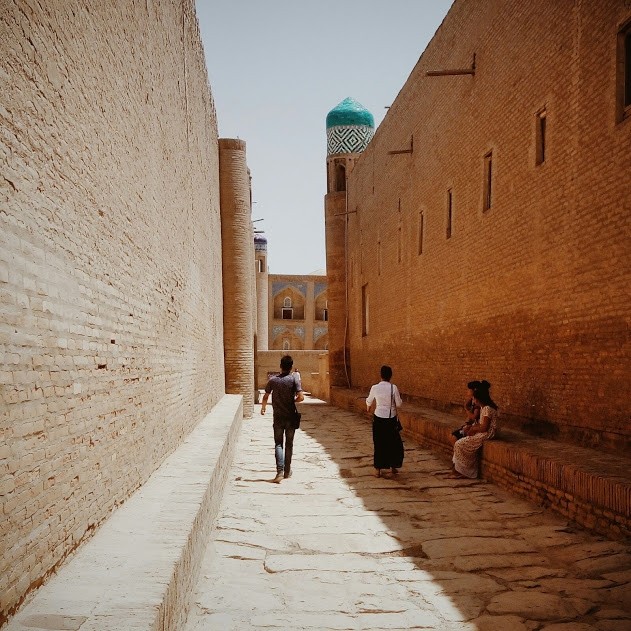
Bukhara. A day in the narrow streets of the old town a few people.
THE ANCIENT CITY OF TALES
Long before Persia in pre-Islamic times, Uzbekistan was part of the Buddhist Kushan Empire (heyday has approximately 105-250 years BC.
), which also occupied part of India, Pakistan, Afghanistan and China. Since ancient times near the town of Termez preserved ancient mosques and palaces and the ruins of the oldest Buddhist cities in the age of more than two thousand years.
The ancient cities of Samarkand, Bukhara, Khiva and is now reminiscent of the tales from “one Thousand and one nights”. Here virtually untouched preserved old city with narrow winding streets and carved doors. The organization of life here as in all Eastern countries: large private houses, facing the street blank walls, stunning cozy interior courtyards with trees and fountains inside. Historic centre of Bukhara, centre of Shakhrisabz, the so-called crossroads of cultures Samarkand, along with the historical inner city of Ichan-Kala in Khiva are part of the list, UNECSO world heritage sites.
Samarkand is one of the oldest existing cities in the world, founded in the VIII century BC, as Rome. The ancient Greeks Samarkand was known as the capital of the ancient state of Sogdiana. It was here that he passed with his troops in 328 BC, Alexander the great, following in his manivshy India. In these places, he married the daughter of a local Prince by the name of Roxanne.
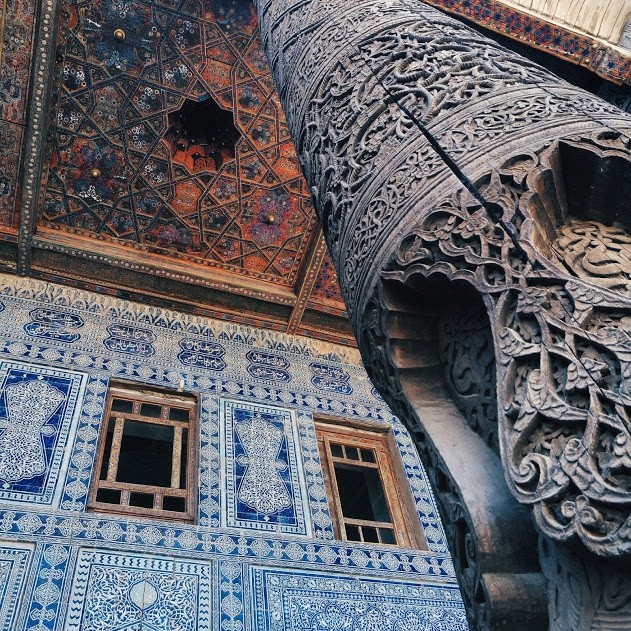
Patterns. The ornaments that decorate homes and religious buildings, was developed many centuries.
RUSSIAN FORGOTTEN: NOR “HI” NOR “THANK YOU”
The Uzbeks are soft and very ironic people. After talking with them stories about Hodja Nasreddin will seem quite real. According to legend, Nasreddin lived in medieval Bukhara. Here he put the monument, which are being photographed and tourists, and local residents.
Be prepared to talk about politics and the fact that many Uzbeks are under the influence of Russian television, and then look at the events in Ukraine from that point of view. Despite the fact that many have served, studied or worked in our country, it is obvious that they are as far from understanding the realities of Ukrainian as the average Ukrainian, from the subtleties of Uzbek politics. But even in the discussions on political topics surprises that the Uzbeks do not argue and do not prove anything. They ask questions and listen very carefully, even if what you say is radically the opposite of what they had heard over the years. Perhaps these are the real people of the East — weighted and respect any point of view.
Despite the Soviet past, the Russian language outside of Tashkent and Samarkand do not know, especially if we are talking about young people. Even more surprisingly, in Russian does not speak and the elderly from remote villages. They don’t even know “thanks” or “good day”! Several of these very colorful grandmothers who most likely were born, grew up, and even retired in the Soviet Union, we met at the Bazaar in Khiva. Ask whether it is possible to photograph them, trying to communicate, but in response received only smiles and incomprehensible words. “They come from a village in Russian can not”, — explains in a sympathetic passerby.
The shop-assistant will show you a price on the calculator, not knowing how to pronounce numbers in Russian, and in the market they will call neighbors, speaking in Russian. However, many of the grandmother in the gifts market in Bukhara can smartly negotiate with foreigners in English and French. And Russian tourists that would have forced them to learn the language of Pushkin, as a rule, do not reach in Uzbekistan on Samarkand.
Madina, an employee of a small hotel, we stayed in Bukhara, looks pensive when he finds out that we came from Ukraine. She’s an ethnic Iranian women, which are many in Bukhara, speaks Farsi, English and Uzbek, but very bad in Russian. But sighs with relief, knowing that we speak English. It seems that we are not in the former Soviet Republic, and yet unknown exotic country.
The most popular pastime Uzbeks after sitting in teahouses is needlework. Uzbekistan is a Paradise for lovers of handmade. In addition to textiles here make their silk, and even paper made of silk, cut from a tree everything, including a huge two-meter doors. Make dolls, embroider with gold, creating unique pottery and coins of copper, knit, sew leather, make musical instruments and unique jewellery. A genre — making unique scissors with handles in the form of strange birds and animals. Many workshops are working right in centre of old cities, for example, in the historical centre of Khiva, where you can watch the process and even take a master class.
But it is worth considering that the Uzbek Bank card is not connected to the international payment systems MasterCard and Visa. This means that they cannot be used to pay anywhere, except Uzbekistan. Therefore, hotel owners often ask residents to pay the monthly fee for the booking system in the Internet in return for cash.
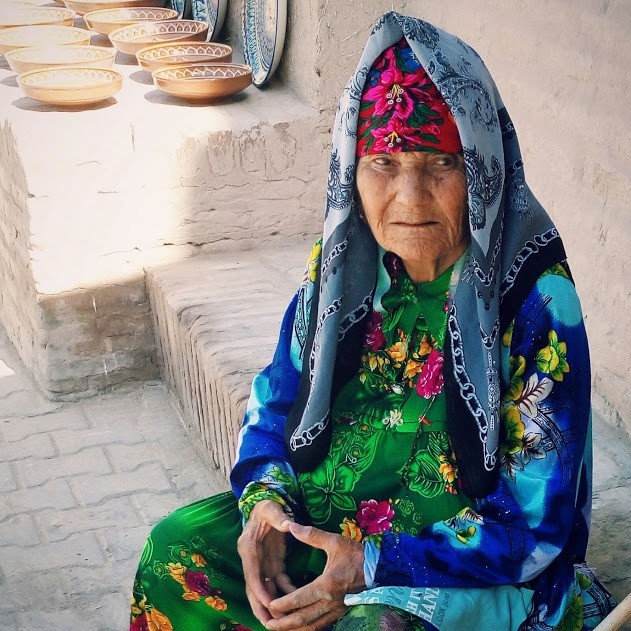
Residents. The old-timers did not know the Russian language, as if he had not lived in the Soviet Union.
KITCHEN: IN EVERY CITY A SPECIAL PILAF RICE
Uzbek carpets — it’s not even art, it’s a national treasure. And if carpets are associated with tasteless products of the Soviet era, then certainly worth going over carpet ranks in Uzbek bazaars. The variety of colours, patterns and materials is striking and creates a strong impression that Ukraine somehow got only the miserable designs.
A separate issue suzani hand — embroidery on cotton or silk depicting local symbols from fruit to geometric designs. They mostly hung on the wall or used as bedspreads. As Ukrainian towels, in ancient times, each girl had to embroider suzanis, which have become part of her dowry.
Not to mention the main national dish can be considered a work of art. This pilaf, which is called Osh. To try it is in every city through which your route passes. And you must prepare for the fact that they are very different. The plov in Tashkent and Bukhara pilaf is also very different from each other as from the plov in Khiva. Like borscht — there are no two identical rice. Invariably one thing — quality rice (often use red rice devzira, completely unknown outside of Central Asia), two kinds of carrots — red and yellow, cumin and seasoning the meat, which in Uzbekistan is usually cooked separately from the rice with vegetables.
But the wine to the risotto should still look. In many cities there is prohibition (in particular in the conservative Ferghana valley), in the other alcohol is only sold in a few stores.
To admire all the splendor of Uzbek better in the spring, from April to may, or autumn, from October to November. At the end of may in Uzbekistan it is already possible to buy apricots, plums and even a small ripe melon and also try their traditional juice of mulberry.
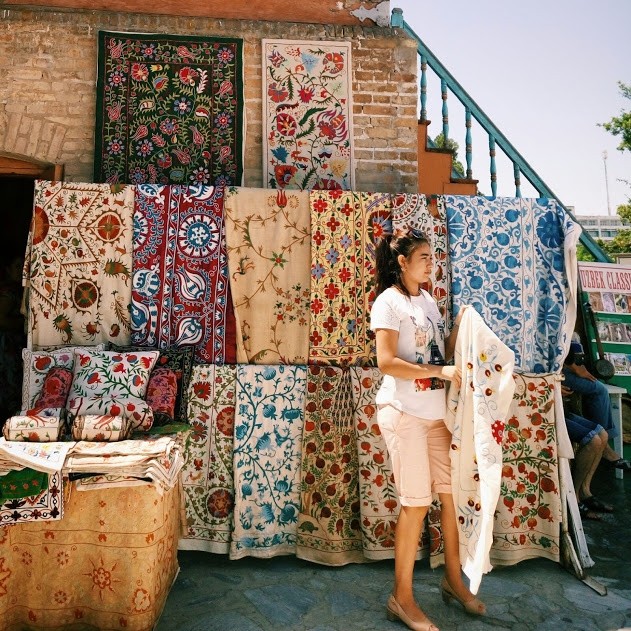
Pride. Carpets — it’s not even art, but a national treasure.

